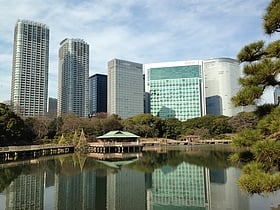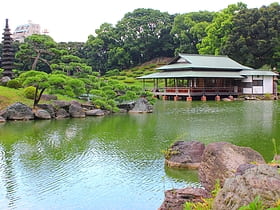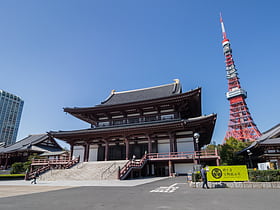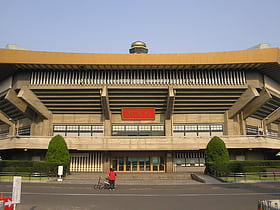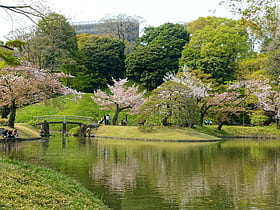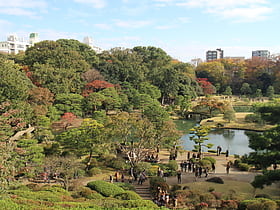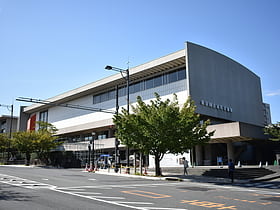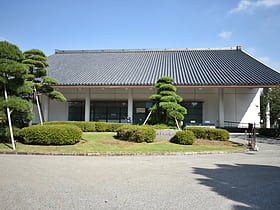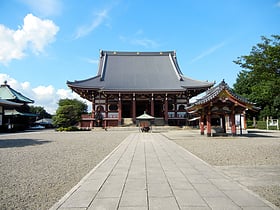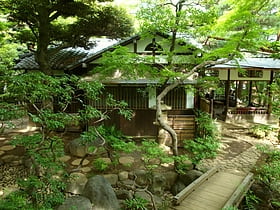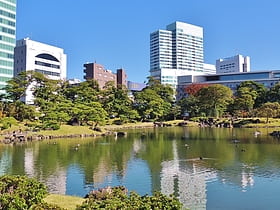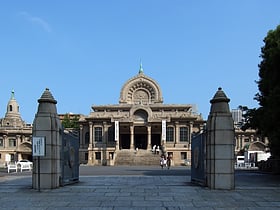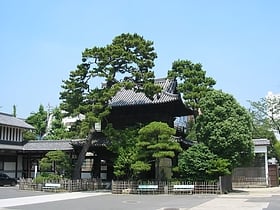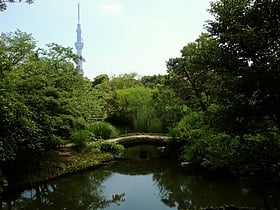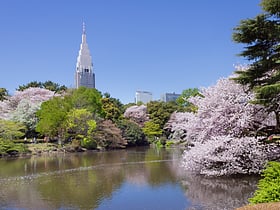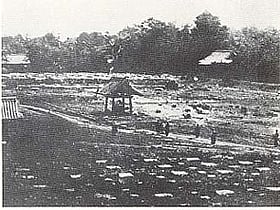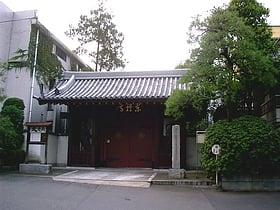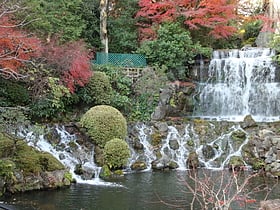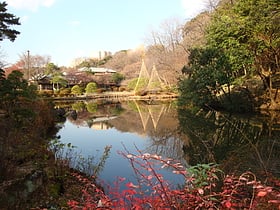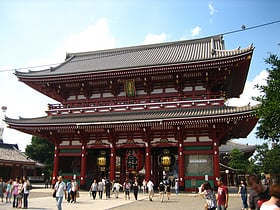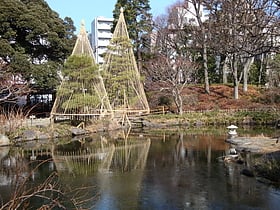Tokyo: Buddhist Architecture
Places and attractions in the Buddhist architecture category
Categories
- Museum
- Park
- Temple
- Art museum
- Sacred and religious sites
- Neighbourhood
- Shopping
- Amusement park
- Theater
- Skyscraper
- Concerts and shows
- Universities and schools
- Buddhist architecture
- Specialty museum
- Nightlife
- Area
- Architecture
- Historical place
- Shopping centre
- History museum
- Garden
- Amusement
- Concert hall
- Sport
- Music venue
- Sport venue
- Theme park
- Music and shows
- Amusement ride
- Buddhist temple
- Arenas and stadiums
- Bridge
- Library
- Art gallery
- Modern art museum
- Event space
- Palace
- Dancing
- Tower
- Science museum
- Observation decks and towers
- Church
- Forts and castles
- Business center
- Botanical garden
- Convention center
- Entertainment district
- Sport complex
- City
- Cemetery
- Monuments and statues
Hamarikyu Gardens
Former Imperial gardens open to public Nestled amidst the bustling metropolis of Tokyo, Hamarikyu Gardens stands as a serene oasis offering a tranquil escape from the city's relentless pace. This historic park, surrounded by skyscrapers and the waters of Tokyo Bay, serves as a testament to the fusion of...
Kiyosumi Garden
Kiyosumi Garden is a serene oasis nestled within the bustling city of Tokyo, Japan. This traditional Japanese stroll garden, located in the Koto Ward, is a perfect embodiment of harmony and tranquility. The garden was originally established during the Edo Period...
Zōjō-ji
Buddhist temple complex dating to 1622 Zōjō-ji is an iconic Buddhist temple located in the Minato district of Tokyo, Japan, offering a serene escape amidst the bustling cityscape. Founded in 1393 as the main temple of the Jodo sect of Japanese Buddhism, it has stood as a spiritual center for centuries...
Nippon Budokan
The Nippon Budokan, often shortened to simply "Budokan," is an iconic arena nestled in the heart of Tokyo, Japan. Known primarily as a venue for martial arts competitions, particularly judo, it has also gained international fame as a concert hall, where numerous...
Koishikawa Kōrakuen
Nestled within the bustling city of Tokyo, Koishikawa Kōrakuen offers a tranquil escape to a classical Japanese landscape garden that dates back to the early Edo period. As one of the oldest and best-preserved gardens in the Japanese capital, it provides a picturesque...
Rikugi-en Gardens
Classical garden with a pond and teahouses Nestled in the bustling metropolis of Tokyo, the Rikugi-en Gardens offer a tranquil escape with their meticulously maintained landscapes that embody the essence of traditional Japanese garden design. Created in the Edo period, around the year 1700, by Yanagisawa...
National Museum of Modern Art
The National Museum of Modern Art, Tokyo, often abbreviated as MOMAT, is a treasure trove of contemporary artistic expression nestled in the heart of Japan's bustling capital city. As Tokyo's first national art museum, it was established in 1952 and has since become a...
Museum of the Imperial Collections
The Museum of the Imperial Collections Sannomaru-Shōzōkan is located on the grounds of the East Garden of Tokyo Imperial Palace. It showcases a changing exhibition of a part of the imperial household treasures.
Ikegami Honmon-ji
Ikegami Honmon-ji is a temple of the Nichiren Shū south of Tokyo, erected where Nichiren is said to have died. Also Nichiren's disciple Nikkō spent the rest of his life at this temple. The temple grounds also include Nichiren Shū's administrative headquarters.
Tonogayato Garden
Tonogayato Garden is a traditional Japanese garden located in Kokubunji, Tokyo. Its name comes from the region's old name, Tonogayato, Kokubunji village. The garden covers an area of 21,124 square metres.
Kyū Shiba Rikyū Garden
Traditional Edo-period landscaped garden The Kyū Shiba Rikyū Garden, also known as Kyū Shiba Rikyū Onshi Teien is a public garden and former imperial garden in Minato ward, Tokyo, Japan. The garden is one of four surviving Edo-period clan gardens in Tokyo, the others being Koishikawa Kōraku-en, Rikugi-en, and Hama Rikyu Garden.
Tsukiji Hongwanji
Tsukiji Hongan-ji, sometimes archaically romanized Hongwan-ji, is a Jodo Shinshu Buddhist temple located in the Tsukiji district of Tokyo, Japan. The temple is adjacent to Tsukiji Station on the Tokyo Metro Hibiya Line.
Sengaku-ji
Sengaku-ji is a Buddhist temple belonging to the Sōtō school of Japanese Zen located in the Takanawa neighborhood of Minato-ku, near Sengakuji Station and Shinagawa Station, Tokyo, Japan.
Mukojima Hyakkaen
Mukōjima-Hyakkaen Garden is an urban garden located in Sumida, Tokyo. The garden was created by a merchant, and is different from daimyō gardens, and therefore it not a "traditional Japanese garden" in the proper sense of the term.
Shinjuku Gyo-en
Sizable park with gardens and a greenhouse Shinjuku Gyo-en is a large park and garden in Shinjuku and Shibuya, Tokyo, Japan. It was originally a residence of the Naitō family in the Edo period. Afterwards, it became a garden under the management of the Imperial Household Agency of Japan. It is now a national park under the jurisdiction of the Ministry of the Environment.
Kan'ei-ji
Tōeizan Kan'ei-ji Endon-in is a Tendai Buddhist temple in Tokyo, Japan, founded in 1625 during the Kan'ei era by Tenkai, in an attempt to emulate the powerful religious center Enryaku-ji, in Kyoto. The main object of worship is Yakushirurikō Nyorai.
Tōzen-ji
Tōzen-ji, is a Buddhist temple located in Takanawa, Minato, Tokyo, Japan. The temple belongs to the Myōshin-ji branch of the Rinzai school of Japanese Zen.
Chinzan-sō Garden
Chinzan-sō Garden is a Japanese garden located in Bunkyō, Tokyo. Founded in 1877, the garden is rich in historic remains and artifacts. The garden is part of the Hotel Chinzanso Tokyo property and can be accessed by walking from Edogawabashi Station.
Higo Hosokawa Garden
Higo Hosokawa Garden is a Japanese garden located near the Kanda River in Bunkyō, Tokyo. The garden underwent renovation work and along with this there was a request for submission of a new name for the garden.
Hōzōmon
The Hōzōmon is the inner of two large entrance gates that ultimately leads to the Sensō-ji in Asakusa, Tokyo. A two-story gate, the Hōzōmon's second story houses many of the Sensō-ji's treasures.
Kansen-en Park
Kansen-en Park is a Japanese garden located in Shinjuku, Tokyo. It covers an area of about 14,000 square metres. This small park was previously the residence of the Shimizu family, one of Tokugawa Gosankyō, and one of the most prominent families of the Edo era.
Genkū-ji
Genkū-ji, is a Buddhist temple located in the Higashiueno neighborhood of Taitō-ku, Tokyo, Japan. The temple belongs to the Jōdo-shū sect of Japanese Buddhism and its honzon is a statue of Hōnen.
Kitanomaru Park
Kitanomaru Park is a public park in Chiyoda, Tokyo, Japan located North of the Tokyo Imperial Palace. The park is the location of both the Nippon Budokan, an indoor sports and performance venue, the Science Museum and the National Museum of Modern Art, Tokyo.
Ryūsen-ji
Ryūsenji also known as the Meguro Fudō is a Buddhist temple located in Meguro, Tokyo, Japan. The temple currently belongs to the Tendai school of Japanese Buddhism, and its main image is a hibutsu statue of Fudō-myōō.
Reigan-ji
Reigan-ji, is a Buddhist temple located in Kōtō-ku, Tokyo, Japan. The temple belongs to the Jōdo-shū sect of Japanese Buddhism and its honzon is a statue of Amida...
Map

